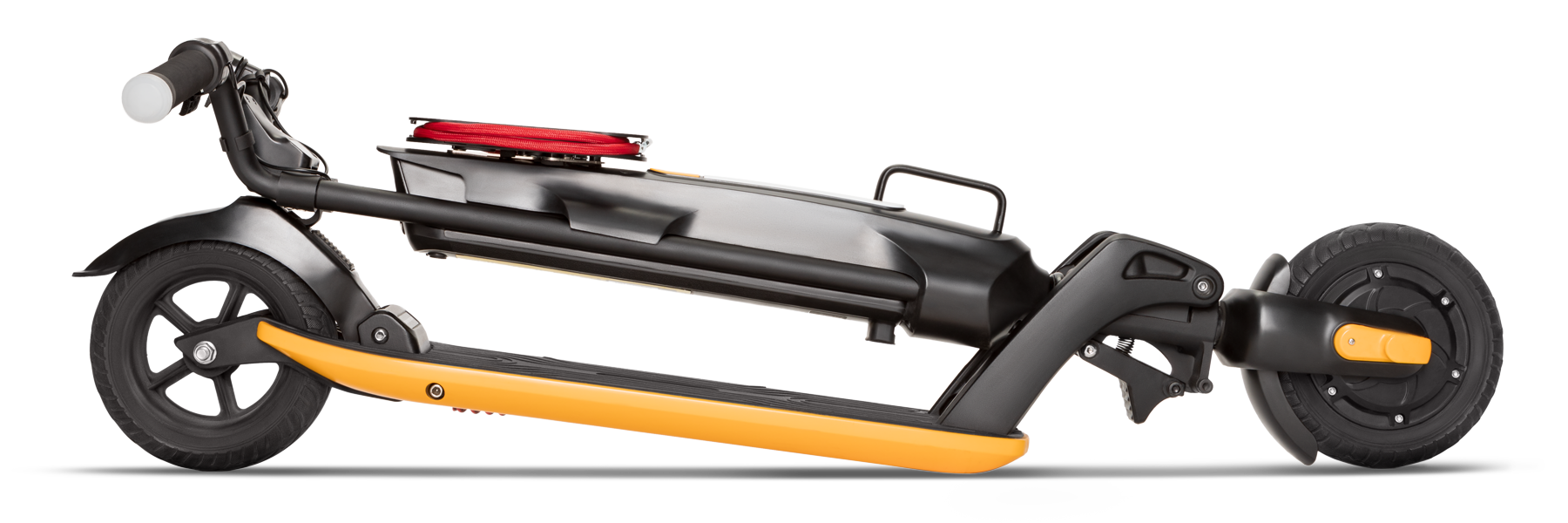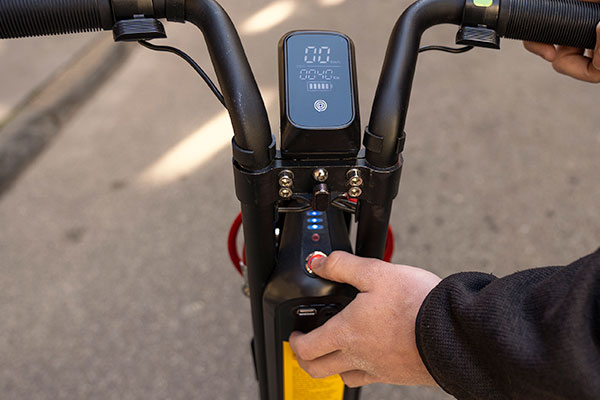Beyond
Making Your Commute Cleaner
The Opportunity
A sustainable solution to traffic congestion
The American transportation system represents a vital component of the global economy and of everyday life in the 21st century. It also stands as the country’s largest individual contributor of greenhouse gasses, with much of the impact falling squarely on major urban areas.
A 2010 study suggests that air pollution from traffic congestion in America’s largest cities may be the cause of around 2200 premature deaths each year. In an especially dense metropolitan area like New York City, air quality can be at unhealthy levels for sensitive groups such as children, seniors, and people living with respiratory conditions over 200 days out of the year.
That’s not even considering the economic impact that this congestion has on the city’s residents. In New York alone, traffic congestion is estimated to cost the city around $9.17 billion in lost travel time, with individuals working in hubs like Manhattan bearing the largest burden.
Since 2018, NYC-based Beyond has provided a smarter, greener alternative for commuters. With the mission of transforming the way that people commute and move through cities around the world, the company now offers a number of sustainably-built personal transportation options designed with riders’ carbon footprint in mind.

CEO & Founder, Beyond“The trip from home to the office is usually very inefficient. We really thought we could better design the commuting experience.”
The Solution
Easily accessible and eco-efficient transportation
Beyond offers a monthly subscription service that grants users access to a fleet of highly portable electric scooters and foldable ebikes. These vehicles are small enough to be carried on mass transit, efficient enough to travel the entire length of Manhattan on a single battery charge, and powerful enough to charge a phone along the way.
Onboard gyroscopes, accelerometers and GPS communicate with Beyond’s web app to help riders plot optimized routes throughout the city.
“The trip from home to the office is usually very inefficient,” said Manuel Saez, CEO and founder of Beyond. “We really thought we could better design the commuting experience.”
A large part of that design focuses squarely on sustainability. Each of Beyond’s vehicles is constructed with 40% fewer parts than similar bikes and scooters. This means that each vehicle requires fewer resources to produce, making them more environmentally efficient in construction and easier to maintain. The entire vehicle can also be easily recycled at the end of its functional lifespan.
Beyond has gone one step further to extend that lifespan by refurbishing portions of its fleet as it ages. When a vehicle nears the end of its usability, Beyond’s team of engineers will rehabilitate the devices with new parts and equipment, effectively doubling the potential lifetime mileage of each of these bikes and scooters.
This production model, designed with an eye toward sustainability, means each vehicle produces 33x fewer emissions per 7500 miles than a car.
“Maximizing the useful life of our products means minimizing their environmental impact,” said Saez.
Why Soracom
Flexible pricing and a reliable network
Connecting a fleet of bikes and scooters across the largest metropolitan area in the world is no small feat. To this end, Beyond sought out a provider that could ensure strong and secure connections throughout the city that never sleeps, while offering flexible pricing that better reflected riders’ actual commutes.
With Soracom, Beyond can best suit the unique needs of its users. Multicarrier cellular connectivity grants users access to a reliable network no matter where their commute takes them. Soracom’s pay-as-you-go service ensures efficient scalability, allowing Beyond to grow their fleet to match demand without incurring undue cost before vehicles enter service.

The Outcome
Smart commuting made easy
Since its launch, Beyond has provided over 450,000 rides, offsetting over 325 tons of CO2 emissions in the process. The company seeks to change the way commuters interact with their city, and continue to explore new outlets to serve the busiest urban centers in the country.
